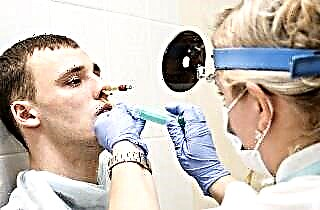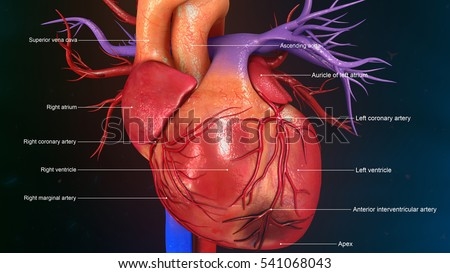 This is a rather dangerous pathology, and the threat to the child's health is associated not only with the primary manifestations of tonsillitis.
This is a rather dangerous pathology, and the threat to the child's health is associated not only with the primary manifestations of tonsillitis.
The disease can remind of itself after a few weeks with disorders of the kidneys, joints and heart.
Therefore, the treatment of tonsillitis in a child is carried out only by a doctor - it must be timely and comprehensive. However, parents should know how to treat inflammation of the tonsils in children, for which certain medications are intended.
Choice and treatment regimen
If parents, noticing a sharp deterioration in the child's condition or hearing his complaints of a sore throat, found inflamed tonsils during an independent examination of the oropharynx, the diagnosis is clear: tonsillitis. However, this definition only means the presence of an inflammatory process in which the tonsils are involved; it does not exclude the possibility of other diseases occurring simultaneously. Also, if there is no purulent plaque on the tonsils, it is difficult to immediately establish the nature of the pathogen.
With angina, the main principle of treatment is etiotropic, implying an effect on an infectious agent. If it is a bacterium - and in children, in most cases, tonsillitis is caused by beta-hemolytic streptococcus - you can count on improvement in the condition after starting antibiotic therapy. But antibiotics are useless if the changes in the tonsils are caused by a virus.
Confirming the assumption about a particular infectious agent is the prerogative of the doctor. For this, both the assessment of clinical data (the presence of plaque and its characteristics, the severity of pain, the type of febrile curve, the presence of a rash on the tonsils) and laboratory methods (express tests, inoculation of biomaterial on nutrient media) are used. In addition, knowledge about the features of infections helps - for example, a very severe sore throat with streptococcal tonsillitis, moderate pain, no runny nose and dense grayish plaques with diphtheria, enlargement of the spleen and lymph nodes with mononucleosis, blistering rash with herpangin.
Thus, the treatment regimen for inflammation of the tonsils in children is based on the concept of the causative agent of the infection.
There are a lot of options for inflammation of the glands in children - some of them are common, like streptococcal tonsillitis, others are rare (diphtheria, secondary tonsillitis). For treatment in childhood, a scheme is used, which is adjusted depending on the type of pathogen and the general condition of the patient:
- Etiotropic therapy.
- Antipyretic therapy.
- Local, including folk remedies.
When starting the treatment of a child, you need to take into account his age characteristics, the severity of the condition. Not all types of tonsil inflammation can be treated at home, even after consulting a doctor. Sometimes small children refuse food and water because of pain. As a result, there is a risk of dehydration (dehydration), which is aggravated by severe intoxication (fever, vomiting). Therefore, a child whose glands are affected by the inflammatory process needs constant attention of the adults around him.
Etiotropic therapy
With the bacterial etiology of inflammation of the tonsils, antibacterial drugs are used:
- penicillins (Amoxicillin, Ampicillin, Augmentin);
- cephalosporins (Lexin, Zinnat);
- macrolides (Azithromycin, Clarithromycin).
The course of antibiotic therapy, according to modern standards, lasts from 7 to 10 days. It is impossible to interrupt it earlier or independently reduce the dosage recommended by the doctor and the frequency of administration. This is fraught with the danger of the formation of resistance (resistance) by pathogenic microorganisms - if this happens, in the future the drug will be ineffective.
If the inflammation of the glands is due to diphtheria, it is imperative to use anti-toxic anti-diphtheria serum. Antibiotics are also prescribed at the same time (Ampicillin).
Aminopenicillins (Amoxicillin, Ampicillin) are not used if inflammation of the tonsils gives reason to suspect infectious mononucleosis.
Infectious mononucleosis is of a viral nature, and antibiotics are indicated only when a bacterial infection is attached, as evidenced by objective changes and laboratory tests. But if necessary, cephalosporins or macrolides are prescribed for antibiotic therapy. Aminopenicillins with infectious mononucleosis provoke a rash on the skin.
Etiotropic treatment of viral infections is not always carried out. In many cases, local exposure, symptomatic drugs are sufficient. Antiviral agents (Acyclovir, Zovirax) are indicated, in particular, when infected with herpes viruses (a common form of herpetic stomatitis). If a child's glands are inflamed due to a mycotic infection, treatment includes antifungal drugs (Fluconazole, Itraconazole).
The release form of the medicinal product is determined by the age of the patient, his condition. Children over 5 years old can be given tablets, capsules; if there are difficulties with swallowing solid dosage forms, choose powders, granules, suspensions, solutions for injection in ampoules.
Antipyretic therapy
 Antipyretic therapy is also called antipyretic, and the drugs that are used are antipyretics. These drugs make it possible to lower body temperature, which improves the general condition, reduces the risk of developing hyperthermic and convulsive syndrome. Antipyretics, represented by non-steroidal anti-inflammatory drugs (NSAIDs), also have an analgesic effect - they eliminate headaches, relieve pain in the throat and joints.
Antipyretic therapy is also called antipyretic, and the drugs that are used are antipyretics. These drugs make it possible to lower body temperature, which improves the general condition, reduces the risk of developing hyperthermic and convulsive syndrome. Antipyretics, represented by non-steroidal anti-inflammatory drugs (NSAIDs), also have an analgesic effect - they eliminate headaches, relieve pain in the throat and joints.
Antipyretics are needed for those types of tonsillitis, which are accompanied by a significant increase in body temperature.
They are not required if the disease is mild, and the fever reaches only subfebrile values (up to 37.9 ° C). Antipyretics are symptomatic drugs. They are used when there is a symptom, that is, a febrile condition, and not to prevent it.
What antipyretics can be used in children? These include:
- Ibuprofen (Nurofen, Nurofen for children);
- Paracetamol (Panadol, Panadol Baby).
The choice of the drug is carried out in accordance with the age of the child, the presence of contraindications. An antipyretic is taken if the body temperature reaches 38 ° C or more. It is inappropriate to use it for subfebrile fever, since temperature changes are part of the immune response mechanism. Reducing low-grade fever without indications in case of an infectious disease is equivalent to suppressing the reactivity (protective ability) of the immune system.
As an antipyretic for inflammation of the glands, children should not take acetylsalicylic acid (Aspirin). Taking drugs based on acetylsalicylic acid in childhood is dangerous, since there is a risk of Reye's syndrome (acute hepatic encephalopathy).
Researchers have established a link between Reye's syndrome and viral infection. Since it is not always possible to quickly determine whether a virus or bacterium has caused inflammation of the tonsils, it is better to refuse the use of Aspirin and its analogues for a child.
Local therapy and folk remedies
Local influence is used both as an independent method of treatment and as a complementary method to systemic therapy. In this case, the tablets should be absorbed for a long time and thoroughly, the rinsing solutions should be kept for some time in the oropharyngeal cavity, after the procedure, do not eat or drink for about half an hour. This allows you to prolong the effect of the drug, regardless of its form of release.
From pharmacy agents for influencing inflamed tonsils in a child, you can use:
- Local antibiotics and antiseptics (Bioparox, Ambazon, Hydrogen peroxide) - for bacterial infections.
- Anti-inflammatory, analgesic, antiseptics (Tantum Verde, Islamoos, Strepsils Intensive) - for bacterial, viral infections.
- Immunomodulators, antifungal (Imudon, Decamin, Nystatin) - for fungal infections.
How to treat tonsils in children with folk remedies? For this, the following can be applied:
- soda and / or salt solution;
- decoctions and infusions of herbs (sage, chamomile);
- resorption of honey in the absence of allergies, other contraindications.
You need to gargle often - antiseptics are used 3 to 5 times a day, and herbal anti-inflammatory drugs, solutions based on salt or soda are used 8 to 10 times a day. It is better to rinse a short time after a meal, since it will be necessary to maintain an interval of half an hour to maintain the useful effect of the medicine. All solutions, decoctions and infusions for rinsing should be warm, comfortable temperature for the child. In addition, most of them cannot be stored for a long time; preference is given to freshly prepared medicines.
The essence of rinsing is hydration, so if the glands are inflamed, it can be replaced with abundant frequent drinking.
Gargling with salt, baking soda, or herbs is the most common folk remedy used for tonsillitis. But if the procedure is impossible for some reason, you need to offer the child warm tea or fruit juice, even plain (but not cold) water. The patient should take at least a few sips every hour and a half. Honey can be used if approved by the attending physician.
Treatment of children with local remedies requires taking into account some peculiarities. For example, the use of sprays for irrigation of the mucous membrane of the oropharynx is indicated for children over 3-5 years old, since it can cause laryngospasm and respiratory arrest. The gargle will be useless if the child does not know how to gargle or does not know how to do it correctly, and immediately spits out the medicine. Tablets and other solid dosage forms are undesirable for small children - this is due to the risk of accidental ingestion. Some drugs have clear age restrictions and cannot be prescribed if the child is younger than the age specified in the instructions.
It is worth remembering that any medicines, including folk remedies, can be dangerous or ineffective. The younger the child, the higher the likelihood of developing an allergic reaction and other adverse effects. Treatment of children with inflammation of the tonsils is carried out only on the recommendation and under the supervision of a doctor.



